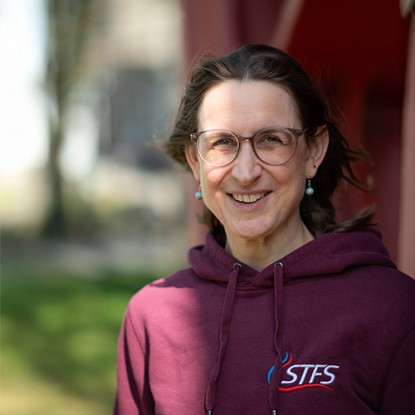The 5th edition of the “Two Day Workshop for Engine Simulations using OpenFOAM Technology” workshop has been a great success. After a long period of not meeting colleagues and friends due to the ongoing pandemic, it has been great to hold the workshop in person at the Lufthansa Seeheim Conference Hotel near Darmstadt. The meeting was co-organized by the STFS (Simulation of reactive Thermo-Fluid Systems) group at TU Darmstadt and the ICE (Internal Combustion Engine) group at Politecnico di Milano.
The planning committee would like to thank all attendees and presenters. It has been a great occasion to exchange the community's advancements of the past two years on Engine Simulation using OpenFOAM. With 46 attendees, including engineers, developers, and scientists, 20 talks and plenty of discussions, it has been a great platform to exchange experiences, expertise as well as ideas for the future of the community and to consolidate the OpenFOAM Internal Combustion community and its efforts. We are looking forward to seeing the results of this continued effort and collaboration in the next workshop in two years.
Overview
OpenFOAM is now a consolidated platform for computational fluid dynamics whose capabilities are continuously extended thanks to its object-oriented structure, making it a very efficient platform for the development of advanced numerical and physical models.
This Two-Day Meeting is dedicated to engineers and researchers using the OpenFOAM technology for the simulation of internal combustion engines and related processes. Presentations from universities, research institutes and industries will address the state of the art, real applications and specific developments related to:
- in-cylinder flows: gas exchange, fuel-air mixing, combustion, pollutant formation
- intake and exhaust systems: after-treatment, unsteady flows, silencers
Program
Previous meetings
If interested, please see also the program of the previous two-day meeting editions which were organized in the past.

About the ICE Group at Politecnico di Milano
The Internal Combustion Engine Group (ICE Group) is one of several programs at the Dipartimento di Energia of Politecnico di Milano. The group activities focus on the study of combustion, propulsion systems and energy systems.

Support
The event is supported by the Transregional Collaborative Research Center TRR 150 “Turbulent, chemically reactive, multi-phase flows near walls” funded by the German Research Foundation (DFG).




